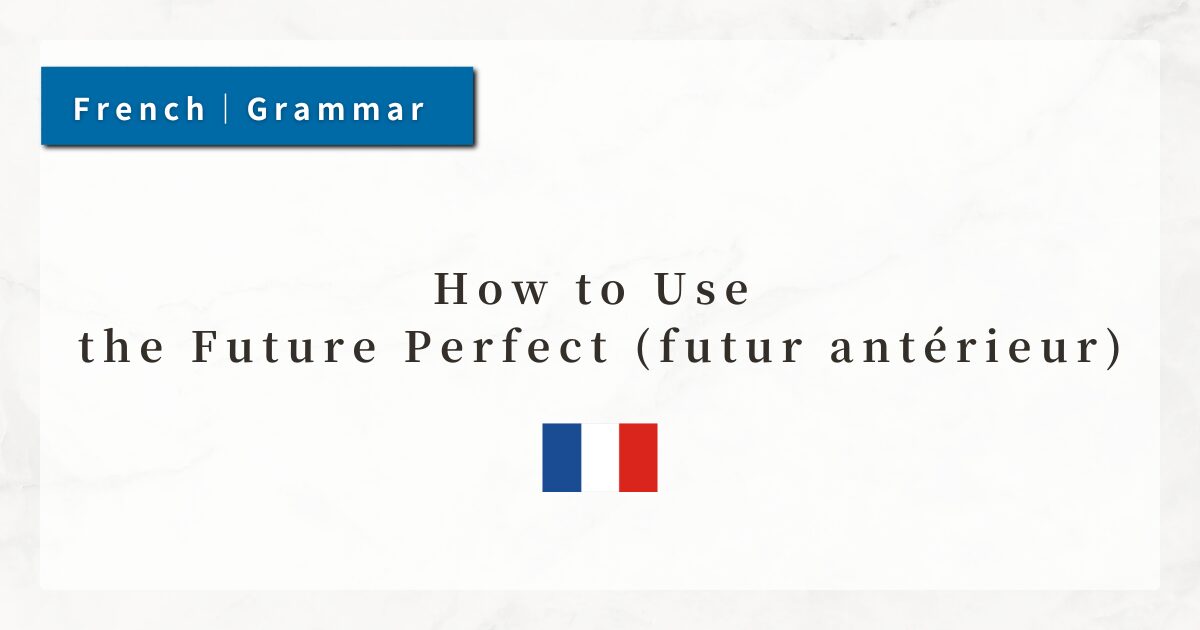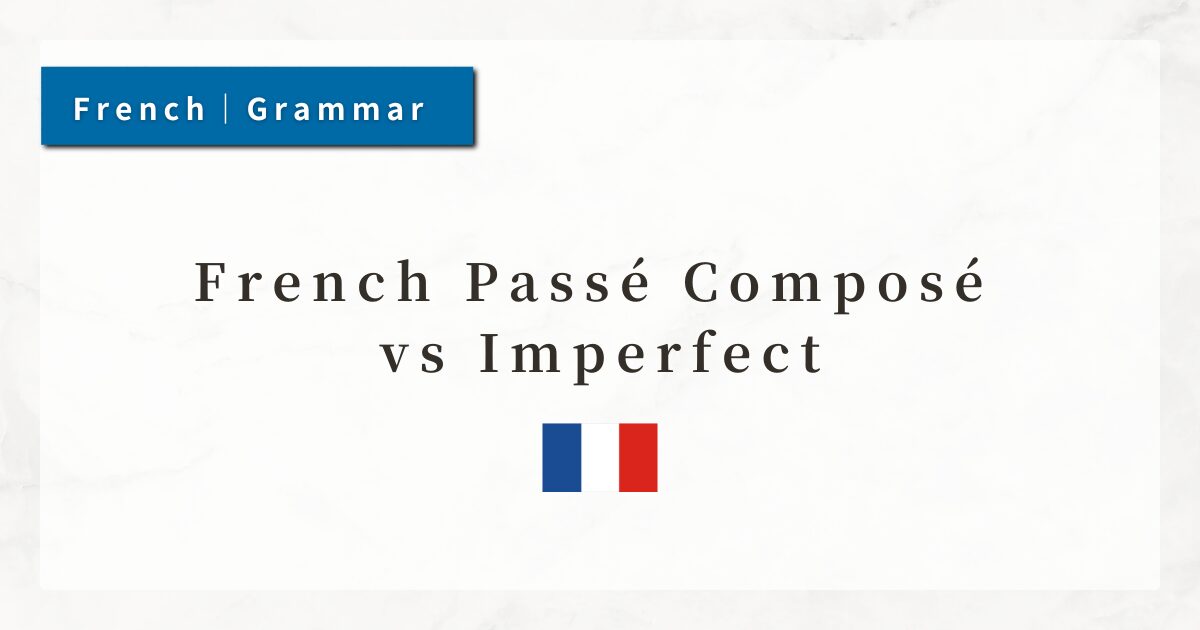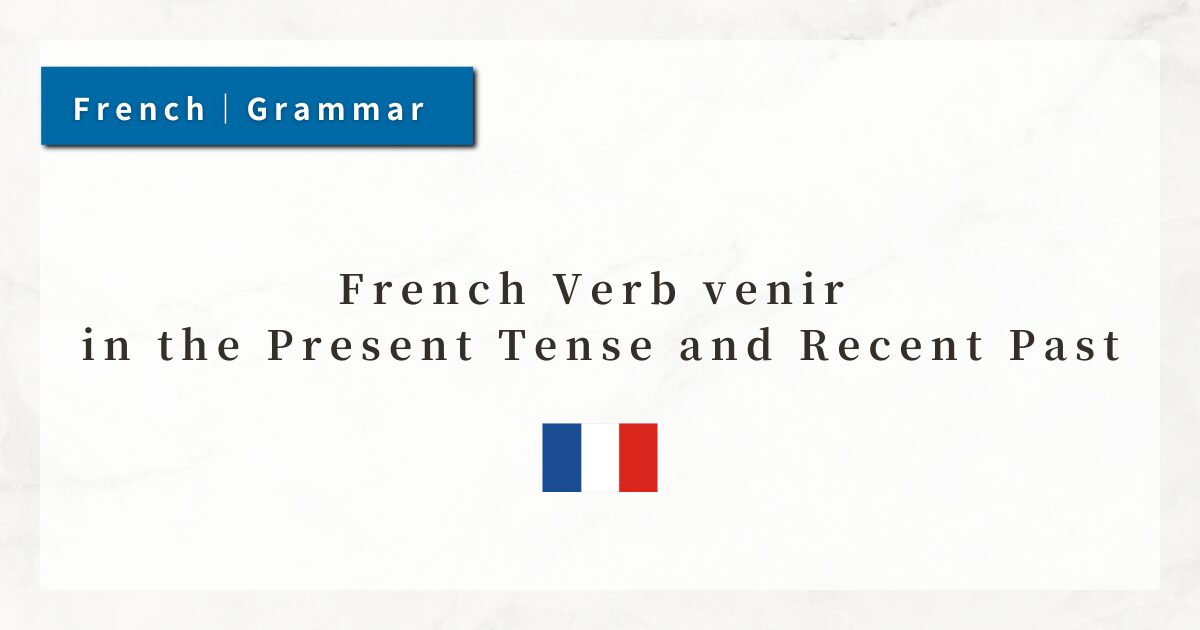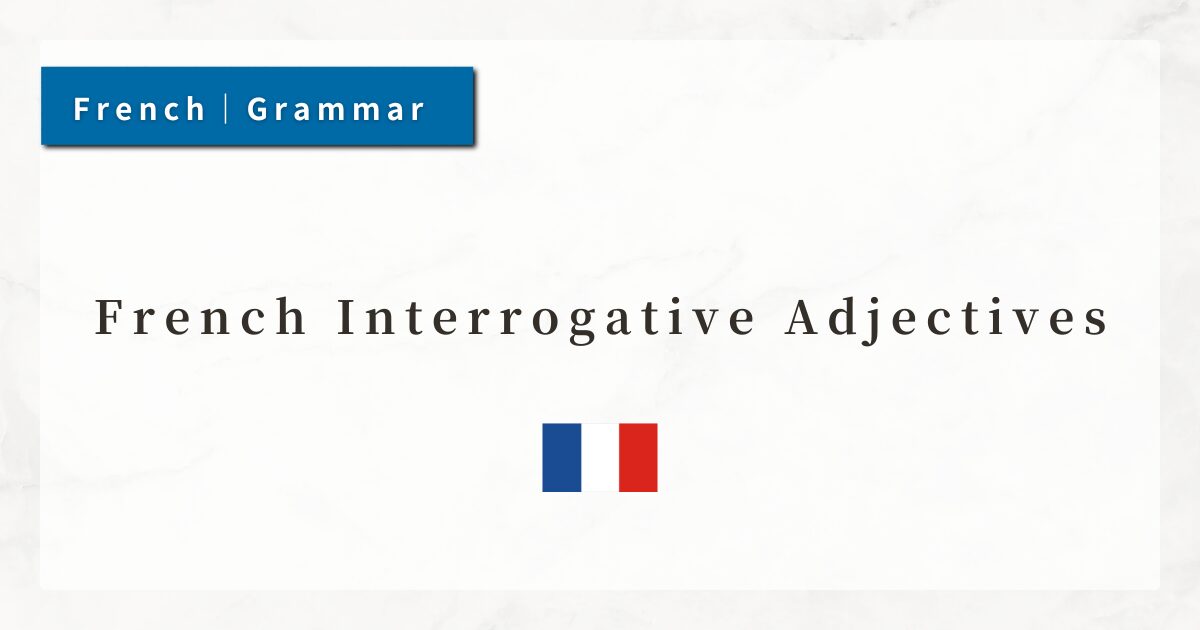#42 How to Use the Future Perfect (futur antérieur) | Rules and Conjugation

The French futur antérieur (future perfect) is a tense used to express that something will already have been completed by a certain point in the future.
It is often translated as “will have + past participle” in English (e.g., I will have finished), which may feel somewhat abstract but is structurally straightforward.
In this lesson, I will explain how to form and use the Future Perfect, along with key points and examples.
1. What Is the Future Perfect?
The Future Perfect is used to describe an action or event that will already be completed before a certain point in the future. In English, it corresponds to “will have + past participle.”
There are two main uses of the Future Perfect:
- To express completion before a point in the future
→ J’aurai fini demain après-midi.
(I will have finished by tomorrow afternoon.) - To express conjecture or assumption about a past event
→ Il aura oublié.
(He must have forgotten.)
2. Formation: Future of avoir / être + Past Participle
The Future Perfect is formed with the simple future tense of the auxiliary (avoir or être) + the past participle of the main verb.
| Subject | avoir (future) + past participle | être (future) + past participle |
|---|---|---|
| je | aurai fini (will have finished) | serai allé(e) (will have gone) |
| tu | auras fini | seras allé(e) |
| il / elle / on | aura fini | sera allé(e) |
| nous | aurons fini | serons allé(e)s |
| vous | aurez fini | serez allé(e)(s) |
| ils / elles | auront fini | seront allé(e)s |
The agreement rules for past participles are the same as in the passé composé.
With verbs that use être and with reflexive verbs, the past participle must agree in gender and number.
3. Key Explanations of the Future Perfect
3-1. Expressing Future Completion
The most basic use is to show that an action will already be completed before a specified point in the future.
- Demain à 18 heures, j’aurai terminé ce travail.
(By tomorrow at 6 p.m., I will have finished this work.)
It is important to note that specific time expressions (e.g., demain, à ce moment-là) often appear in this usage.
3-2. Expressing Conjecture (Must Have ~)
Another use is to express conjecture about a past event — essentially “must have done ~.”
Although it is grammatically a future tense, semantically it refers to an assumption about the past.
- Il aura perdu son téléphone.
(He must have lost his phone.) - Elle n’a pas répondu. Elle aura été occupée.
(She didn’t reply. She must have been busy.)
Here, “aura + past participle” often conveys a strong subjective judgment by the speaker.
3-3. Agreement with être and Past Participles
As with the passé composé, the future perfect requires an auxiliary verb.
- avoir:
used with most verbs (e.g., finir, lire, prendre) - être:
used with verbs of movement (aller, venir, partir, arriver) and reflexive verbs (se lever, se laver)
When être is used, the past participle must agree in gender and number.
- Elle sera allée.
(She will have gone.)
→ feminine singular → allée - Nous serons partis.
(We will have left.)
→ masculine/mixed group → partis - Elles seront arrivées.
(They will have arrived.)
→ feminine plural → arrivées
4. Summary
- The future perfect expresses an action or state completed before another point in the future.
- Form: simple future of avoir / être + past participle.
- Main uses:
Future completion (I will have finished by tomorrow).
Conjecture about the past (He must have forgotten). - With verbs that take être, the past participle must agree in gender and number.




